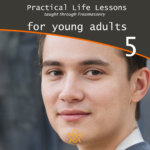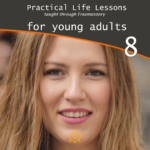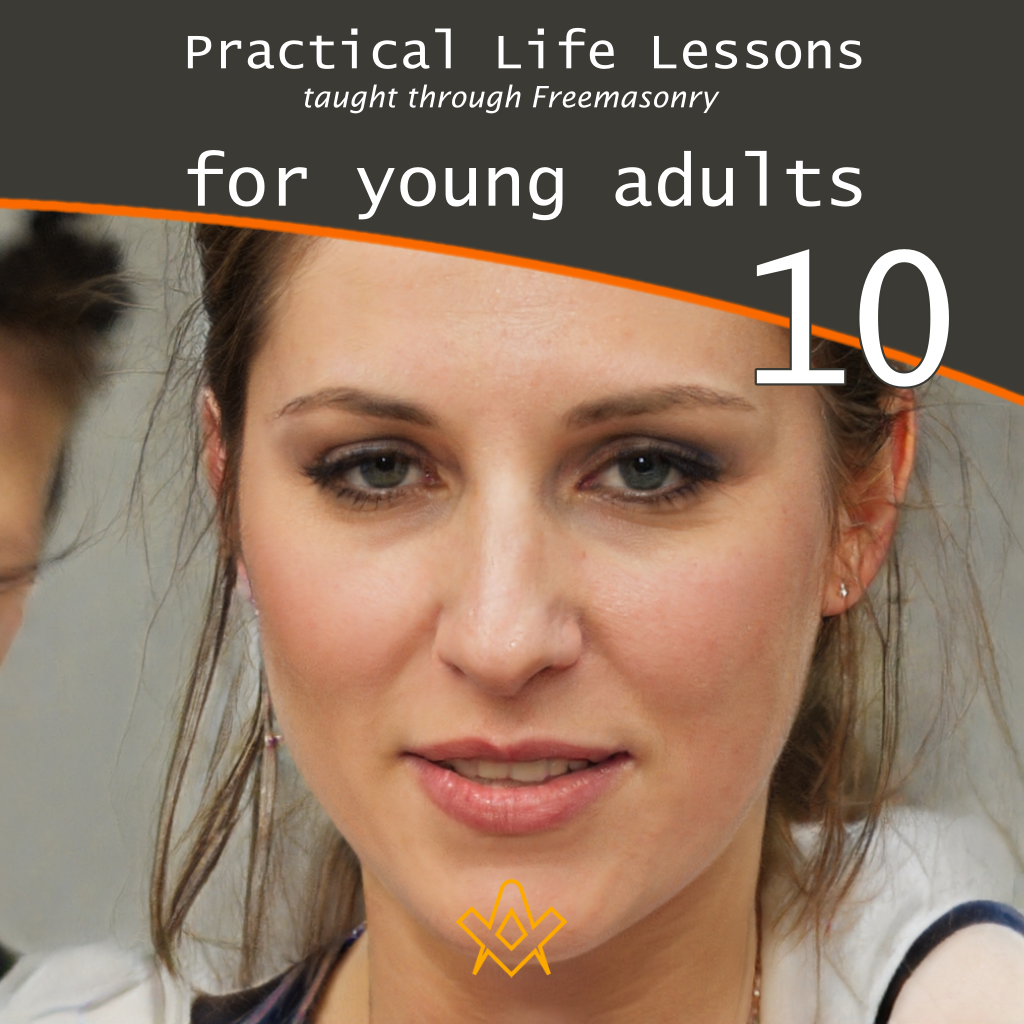A series of articles, produced by the square magazine, offering a guide to practical life lessons, taught through Freemasonry for young professionals, setting out in life after completing full time education.
Lesson 10. How to be adaptable and resilient in the face of challenges and change.
Why it is important to be adaptable and resilient in the face of challenges and change.
Certainly, adaptability and resilience are not just desirable traits; they are essential for survival and success in today’s ever-evolving landscape. Here is an expanded explanation of their importance:
Minimizing Negative Impact: When individuals are adaptable and resilient, they can adjust their strategies and actions swiftly as circumstances change. This nimbleness helps to lessen the negative effects on their personal and professional lives. It ensures continuity of operations in businesses and stability in personal life, despite the adversities.
Enhanced Problem-solving and Creativity: Being adaptable means being open to finding new ways of doing things. This openness fosters an environment where creativity thrives. As individuals encounter challenges, their capacity to think outside of the box is sharpened. Resilient individuals learn from each difficulty, using those lessons to fuel innovative solutions for future problems.
Mental and Emotional Strength: Adaptable and resilient individuals develop strong coping mechanisms, which equip them to handle the emotional rollercoaster that often accompanies change and hardship. They tend to be more optimistic and possess a growth mindset, which enables them to see challenges as opportunities for personal and professional growth rather than insurmountable barriers.
Improved Outcomes and Success: Adaptability often leads to faster and more efficient problem resolution. Those who can pivot quickly often find paths to success that are not apparent to those resistant to change. Moreover, resilient individuals are less likely to give up in the face of setbacks, persisting until they reach their goals. This perseverance is frequently the difference between success and failure.
Maintaining Competitiveness: In business and career development, the ability to adapt to new technologies, market shifts, and global trends is vital. Organizations that foster a culture of adaptability and resilience can better anticipate industry changes and pivot as needed, ensuring their long-term survival and prosperity. Similarly, individuals who are adept at adapting are more likely to remain valuable in the workforce.
Health and Happiness: Adaptability and resilience have profound implications on mental health. Those who are adaptable are more likely to embrace change rather than fear it, reducing anxiety and stress. Resilient individuals recover more quickly from setbacks, preventing long-term psychological distress. Together, these traits contribute to an individual's overall happiness and quality of life.
In summary, cultivating adaptability and resilience not only helps in navigating the inevitable waves of change but also empowers individuals to turn challenges into stepping stones for success and inner fulfillment. Freemasonry, with its focus on personal development, ethics, and community service, often emphasizes these qualities as cornerstones for building better individuals and, by extension, a better society.
How to be adaptable and resilient in the face of challenges and change.
Accept that change is inevitable: It’s important to understand that change is a natural part of life, and trying to resist it will only cause stress and frustration. Instead, accept that change is going to happen, and focus on finding ways to adapt to it.
Develop a growth mindset: A growth mindset is the belief that you can improve and grow, even in the face of challenges. This mindset allows you to see challenges as opportunities for growth and learning, rather than roadblocks.
Be proactive: Rather than waiting for change to happen to you, be proactive and seek out new opportunities and experiences. This can involve taking on new responsibilities at work, trying new hobbies, or even moving to a new city.
Build a support network: Surround yourself with supportive people who can help you navigate through difficult times. This can include friends, family, mentors, or even therapists.
Practice self-care: Taking care of yourself is crucial for maintaining a positive mindset and staying resilient. This can include things like getting enough sleep, exercising regularly, eating well, and practicing mindfulness and relaxation techniques.
Stay positive and focused: In the face of challenges and change, it’s important to maintain a positive attitude and stay focused on your goals. This can help you stay motivated and keep moving forward, even when things are tough.
Overall, being adaptable and resilient involves a combination of mindset, proactive behavior, support, and self-care. By adopting these strategies, you can better navigate through challenging situations and embrace change with confidence and resilience.
Top Tips
1. Accepting Change as Natural:
Understand that change is an inevitable part of existence. Try not to resist it; instead, see each change as a new chapter that could potentially bring valuable experiences and lessons. By expecting change and being mentally prepared for it, you can better adapt when it occurs.
2. Positive Mindset and Optimism:
Foster a positive attitude towards life’s events. Instead of focusing on the negatives when faced with challenges, try to look for the silver lining or the lessons that can be learned. Resilience is built on the ability to remain optimistic when things do not go as planned.
3. Flexibility and Open-Mindedness:
Being adaptable involves being willing to adjust your approach and thinking when faced with new information or circumstances. Stay open to different possibilities and be prepared to pivot from your original plan if a new one better suits the situation.
4. Social Connections and Support:
Establish a strong network of friends, family, and colleagues who can offer emotional support, practical advice, and different perspectives in times of need. Being able to rely on others and offer mutual support is crucial for overcoming challenges.
5. Seeking Challenges for Growth:
Actively seek out situations that challenge you. Whether it’s learning a new skill or tackling a complex problem, facing such challenges head-on will strengthen your ability to deal with stress and help you grow more adaptable and resilient.
6. Mindfulness and Self-Care:
Pay attention to your mental and emotional needs. Practicing mindfulness can help you remain calm and collected, enabling better decision-making. Invest in self-care activities that replenish your energy and allow you to maintain a level head during tough times.
7. Personal Responsibility:
Owning up to your actions and their consequences empowers you to take control of your life. Rather than blaming external circumstances, focus on what you can change and the steps you need to take to overcome obstacles.
8. Goals and Values as a Guide:
Having a clear sense of what is important to you — your goals and values — can serve as a compass during times of change. Let these principles guide your decision-making, ensuring that even when adapting, you stay true to what you believe in.
9. Learning from Mistakes:
Embrace failures as learning opportunities. Reflect on what went wrong, what could be done differently next time, and how you can apply these lessons moving forward. This helps build resilience by reinforcing the idea that even setbacks can be constructive.
10. Lifelong Learning and Curiosity:
Be a perpetual learner. The world is constantly evolving, and staying curious keeps your mind active and alert to new developments. Continuous learning ensures you have an ever-expanding toolkit at your disposal for tackling change and adversity.
By incorporating these lessons into your life, you can improve your ability to adapt to new situations, recover from difficulties, and ultimately thrive in a world that is always changing.
Full Series

Practical Life Lessons taught through Freemasonry
Learning and Development
A series of 10 learning and development articles, offering a guide to practical life lessons taught through Freemasonry for young adults setting out in life after full time education.
Overall, the lessons taught by Freemasonry are designed to help young adults develop the character, skills, and knowledge needed to succeed in life. By following the principles of brotherhood, charity, and self-improvement, young open minded individuals can build a strong foundation for a fulfilling and meaningful life.
The topics covered in the series are:
Lesson 1. How to communicate effectively and assertively.
Lesson 2. How to manage your finances and budget your money.
Lesson 3. How to take care of your physical and mental health.
Lesson 4. How to build and maintain healthy relationships.
Lesson 5. How to handle difficult emotions like anger, sadness, and fear.
Lesson 6. How to set and achieve goals for your personal and professional life.
Lesson 7. How to be open-minded and embrace diversity and inclusion.
Lesson 8. How to be a responsible and respectful member of your community.
Lesson 9. How to be a good partner and parent, if and when you decide to have a family.
Lesson 10. How to be adaptable and resilient in the face of challenges and change.
more ...
 Practical Life Lessons taught through Freemasonry - P1 A series of articles offering a guide to practical life lessons taught through Freemasonry for young adults setting out in life after full time education - Lesson 1; How to communicate effectively and assertively ? |
 Practical Life Lessons Taught Through Freemasonry - P2 A series of articles offering a guide to practical life lessons taught through Freemasonry for young adults setting out in life after full time education - Lesson 2: How to manage your finances and budget your money? |
 Practical Life Lessons Taught Through Freemasonry - P3 A series of articles offering a guide to practical life lessons taught through Freemasonry for young adults setting out in life after full time education - Lesson 3: How to take care of your physical and mental health |
 Practical Life Lessons taught through Freemasonry - P4 A series of articles offering a guide to practical life lessons taught through Freemasonry for young adults setting out in life after full time education - Lesson 4: How to build and maintain healthy relationships |
 Practical Life Lessons taught through Freemasonry - P5 A series of articles offering a guide to practical life lessons taught through Freemasonry for young adults setting out in life after full time education - Lesson 5: How to handle difficult emotions like anger, sadness, and fear |
 Practical Life Lessons taught through Freemasonry - P6 A series of articles offering a guide to practical life lessons taught through Freemasonry for young adults setting out in life after full time education - Lesson 6: How to set and achieve goals for your personal and professional life |
 Practical Life Lessons taught through Freemasonry - P7 A series of articles offering a guide to practical life lessons taught through Freemasonry for young adults setting out in life after full time education - Lesson 7: How to be open-minded and embrace diversity and inclusion for your personal and professional life |
 Practical Life Lessons taught through Freemasonry - P8 A series of articles offering a guide to practical life lessons taught through Freemasonry for young adults setting out in life after full time education - Lesson 8: How to emerge as a responsible and respectful member of your community inyour personal and professional life |
 Practical Life Lessons taught through Freemasonry - P9 A series of articles offering a guide to practical life lessons taught through Freemasonry for young adults setting out in life after full time education - Lesson 9: How to be a good partner and parent, if and when you decide to have a family. |
 Practical Life Lessons taught through Freemasonry - P10 A series of articles offering a guide to practical life lessons taught through Freemasonry for young adults setting out in life after full time education - Lesson 10. How to be adaptable and resilient in the face of challenges and change. |
masonic knowledge
to be a better citizen of the world
share the square with two brothers

click image to open email app on mobile device








